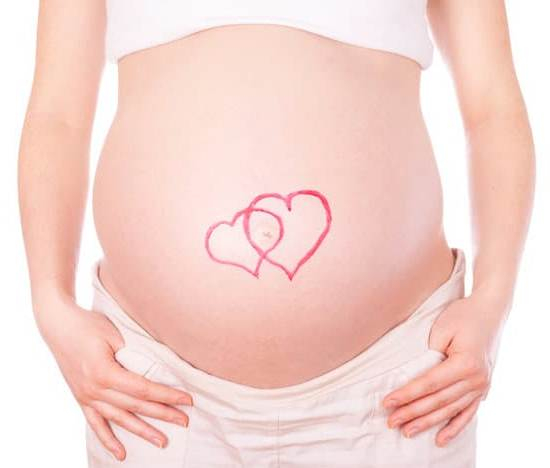Caffeine during pregnancy can be a topic of concern for many expectant mothers. Understanding the impact of caffeine on pregnancy is crucial for the health and well-being of both mother and baby. In this article, we will delve into the effects of caffeine on the body, recommended intake for pregnant women, potential risks and concerns, decaffeinated alternatives, tips for managing caffeine intake, latest research and studies, as well as expert advice and recommendations.
Caffeine is a widely consumed stimulant that can be found in coffee, tea, chocolate, energy drinks, and some over-the-counter medications. It has been known to affect the central nervous system and increase heart rate and alertness. However, its impact on pregnancy requires careful consideration due to its potential to cross the placenta and affect the developing fetus.
Pregnant women are often advised to limit their caffeine intake due to its potential risks. In this section of the article, we will explore what caffeine is, how it affects the body, and what pregnant women should be mindful of when consuming caffeinated products. We will also discuss recommended intake levels for pregnant women and how they can make informed choices regarding their caffeine consumption during pregnancy.
What Is Caffeine and How Does It Affect the Body?
Caffeine is a natural stimulant found in coffee, tea, chocolate, and some soft drinks. It is known for its ability to increase alertness and provide a temporary energy boost. When caffeine is consumed, it quickly gets absorbed into the bloodstream and then crosses the placenta to reach the developing baby. This means that whatever the mother consumes, including caffeine, can directly affect the growing fetus.
Research has shown that excessive caffeine consumption during pregnancy can lead to a higher risk of miscarriage and low birth weight. In addition, high levels of caffeine intake have been linked to an increased likelihood of preterm birth. The effects of caffeine on pregnancy outcomes may vary from person to person, but it is important for pregnant women to be cautious about their caffeine intake.
Pregnant women are advised to limit their daily caffeine intake to 200 milligrams or less. This is roughly equivalent to one 12-ounce cup of coffee.
It is important for expectant mothers to be conscious of their overall intake as caffeine can also be found in other products such as energy drinks, certain over-the-counter medications, and even some types of chocolate. Monitoring and being mindful of all sources of caffeine during pregnancy is crucial for ensuring the health and well-being of both the mother and the baby.
| Effect | Recommendation |
|---|---|
| Risk of miscarriage | Avoid high levels of caffeine consumption |
| Preterm birth | Limit daily caffeine intake to 200 milligrams or less |
| Variety of sources containing caffeine | Monitor all sources of caffeine during pregnancy |
Recommended Caffeine Intake for Pregnant Women
What Is the Recommended Caffeine Intake for Pregnant Women?
According to experts, pregnant women should limit their caffeine consumption to 200 milligrams per day. This is roughly equivalent to one 12-ounce cup of coffee. It’s important to note that caffeine is not only found in coffee, but also in tea, soda, and chocolate. Therefore, it’s essential for expecting mothers to keep track of their overall caffeine intake from all sources.
The Impact of Excessive Caffeine Consumption During Pregnancy
Excessive consumption of caffeine during pregnancy has been linked to an increased risk of miscarriage and low birth weight. Additionally, high levels of caffeine have been associated with a higher likelihood of preterm birth. It’s vital for pregnant women to be aware of these risks and make informed decisions about their caffeine consumption during this critical time.
Monitoring Caffeine Intake
In order to monitor caffeine intake effectively during pregnancy, it’s helpful for expectant mothers to keep track of the amount of caffeine in different beverages and food items. Reading labels and being aware of portion sizes can help ensure that pregnant women stay within the recommended daily limit.
The key is moderation and being mindful of how much caffeine is being consumed on a daily basis in order to minimize potential risks associated with excessive ingestion of caffeine during pregnancy.
Potential Risks and Concerns of Caffeine Consumption During Pregnancy
Caffeine is a common ingredient in many of our favorite beverages, including coffee, tea, energy drinks, and soft drinks. However, when it comes to pregnancy, it’s important for women to be aware of the potential risks and concerns associated with consuming caffeine. Here are some important points to consider:
- Caffeine crosses the placenta: When a pregnant woman consumes caffeine, it can cross the placenta and reach the fetus. This means that the developing baby is also exposed to caffeine, which can have potential implications for their health and development.
- Increased risk of miscarriage: Studies have shown that high levels of caffeine consumption during pregnancy may be linked to an increased risk of miscarriage. While moderate caffeine intake is generally considered safe, it’s crucial for pregnant women to be mindful of their daily intake.
- Effect on fetal growth: Some research suggests that excessive caffeine consumption during pregnancy may affect fetal growth and lead to lower birth weight. This can potentially increase the risk of certain health issues for the infant.
Given these potential risks, pregnant women are often advised to limit their caffeine intake or avoid it altogether. It’s essential to consult with a healthcare provider for personalized recommendations based on individual circumstances. As more research continues to emerge on this topic, expectant mothers should stay informed about the latest findings regarding caffeine during pregnancy.
Decaffeinated Alternatives for Pregnant Women
During pregnancy, many women may choose to reduce their caffeine intake due to its potential risks and concerns. For those who still crave a warm or stimulating beverage, there are plenty of decaffeinated alternatives available.
One popular decaffeinated alternative for pregnant women is herbal tea. Herbal teas come in a variety of flavors and can provide a soothing and relaxing experience without the caffeine. However, it’s important to note that not all herbal teas are safe during pregnancy, so it’s best to consult with a healthcare provider before consuming any herbal tea.
Another decaffeinated option for pregnant women is hot chocolate made with either decaf coffee or no coffee at all. This sweet treat can provide a comforting way to unwind without the caffeine. It’s important for pregnant women to read labels and avoid hot cocoa mixes with added caffeine.
In addition, fruit-infused water is another excellent choice for hydrating and refreshing while avoiding caffeine during pregnancy. Simply slice up some of your favorite fruits like strawberries, oranges, or cucumbers and let them infuse in a pitcher of water for a delicious and satisfying drink option rich in vitamins.
| Decaffeinated Alternative | Description |
|---|---|
| Herbal Tea | A variety of flavors; consult healthcare provider before consumption |
| Decaf Hot Chocolate | Made without caffeine; read labels carefully |
| Fruit-infused Water | Refreshing; rich in vitamins |
Tips for Managing Caffeine Intake During Pregnancy
Managing caffeine intake during pregnancy is crucial for the health and well-being of both the mother and the developing baby. Pregnant women should be mindful of their caffeine consumption and take the necessary steps to manage it effectively.
Understanding Safe Caffeine Intake Levels
It is important for pregnant women to be aware of the recommended caffeine intake levels during pregnancy. The American College of Obstetricians and Gynecologists (ACOG) suggests limiting caffeine intake to 200 milligrams per day during pregnancy. This is equivalent to about one 12-ounce cup of coffee. It is essential to monitor caffeine intake from all sources, including coffee, tea, soda, and chocolate, as they all contribute to daily caffeine consumption.
Reading Labels and Making Informed Choices
Pregnant women should carefully read labels on food and beverages to determine their caffeine content. It is also important to be mindful of products that may contain hidden sources of caffeine, such as certain medications or energy drinks. Making informed choices about the consumption of caffeinated products can help in managing overall caffeine intake.
Exploring Decaffeinated Alternatives
For pregnant women who are accustomed to consuming caffeinated beverages, exploring decaffeinated alternatives can be beneficial. Opting for decaf coffee or tea, as well as other non-caffeinated beverages, can help reduce overall caffeine consumption while still allowing individuals to enjoy their favorite drinks without compromising their health or that of their baby.
By following these tips for managing caffeine intake during pregnancy, expectant mothers can ensure that they are taking the necessary precautions to minimize potential risks associated with excessive caffeine consumption while still being able to enjoy certain foods and drinks in moderation.
The Latest Research and Studies on Caffeine and Pregnancy
Recent research and studies have shed light on the potential impact of caffeine during pregnancy, prompting expectant mothers to be more mindful of their caffeine intake. Here are some key findings from the latest research and studies:
- A study published in the American Journal of Obstetrics and Gynecology found that consuming high levels of caffeine during pregnancy may increase the risk of miscarriage. The study suggested that pregnant women should limit their daily caffeine intake to reduce this risk.
- Research conducted by the National Institutes of Health (NIH) revealed that high caffeine consumption during pregnancy may lead to low birth weight in newborns. This finding has raised concerns about the long-term effects of caffeine on fetal development.
- Another study, published in the European Journal of Epidemiology, linked excessive caffeine intake during pregnancy to a higher risk of preterm birth. The study concluded that pregnant women should be cautious about their caffeine consumption to minimize this risk.
These recent findings have sparked conversations among healthcare professionals and expectant mothers alike, leading to a greater emphasis on the importance of understanding and managing caffeine intake during pregnancy. As more research becomes available, it is crucial for pregnant women to stay informed and make informed choices for the health and well-being of both themselves and their babies.
Expert Advice and Recommendations for Pregnant Women Regarding Caffeine Consumption
In conclusion, the impact of caffeine during pregnancy is an important topic for expecting mothers to consider. While moderate caffeine intake is generally considered safe during pregnancy, it is crucial for pregnant women to be mindful of their consumption. Understanding the potential risks and concerns of caffeine consumption during pregnancy can help expectant mothers make informed decisions about their dietary choices.
Expert advice and recommendations for pregnant women regarding caffeine consumption emphasize the importance of moderation. It is advisable for pregnant women to limit their caffeine intake to 200 milligrams per day, which is equivalent to about one 12-ounce cup of coffee. Furthermore, considering decaffeinated alternatives and managing caffeine intake through mindful consumption can help minimize potential risks associated with excessive caffeine during pregnancy.
With ongoing research and studies on the effects of caffeine during pregnancy, it is essential for pregnant women to stay informed about the latest findings. Consulting with healthcare professionals and seeking expert advice can provide expectant mothers with personalized recommendations based on their individual health and medical history. Ultimately, by staying educated and making informed choices, pregnant women can navigate their caffeine intake during pregnancy in a way that prioritizes the well-being of both themselves and their developing baby.

Welcome to my fertility blog. This is a space where I will be sharing my experiences as I navigate through the world of fertility treatments, as well as provide information and resources about fertility and pregnancy.





